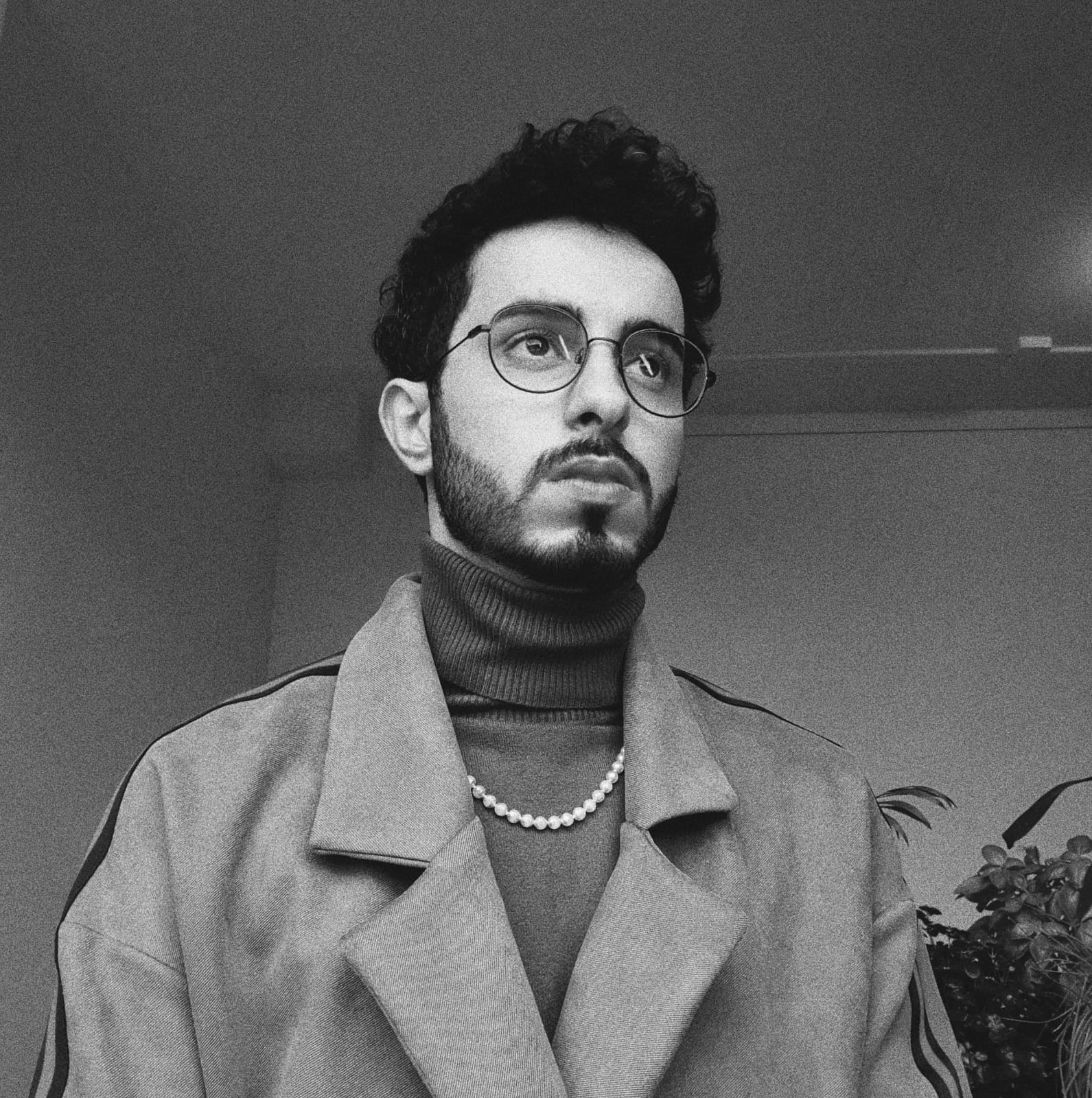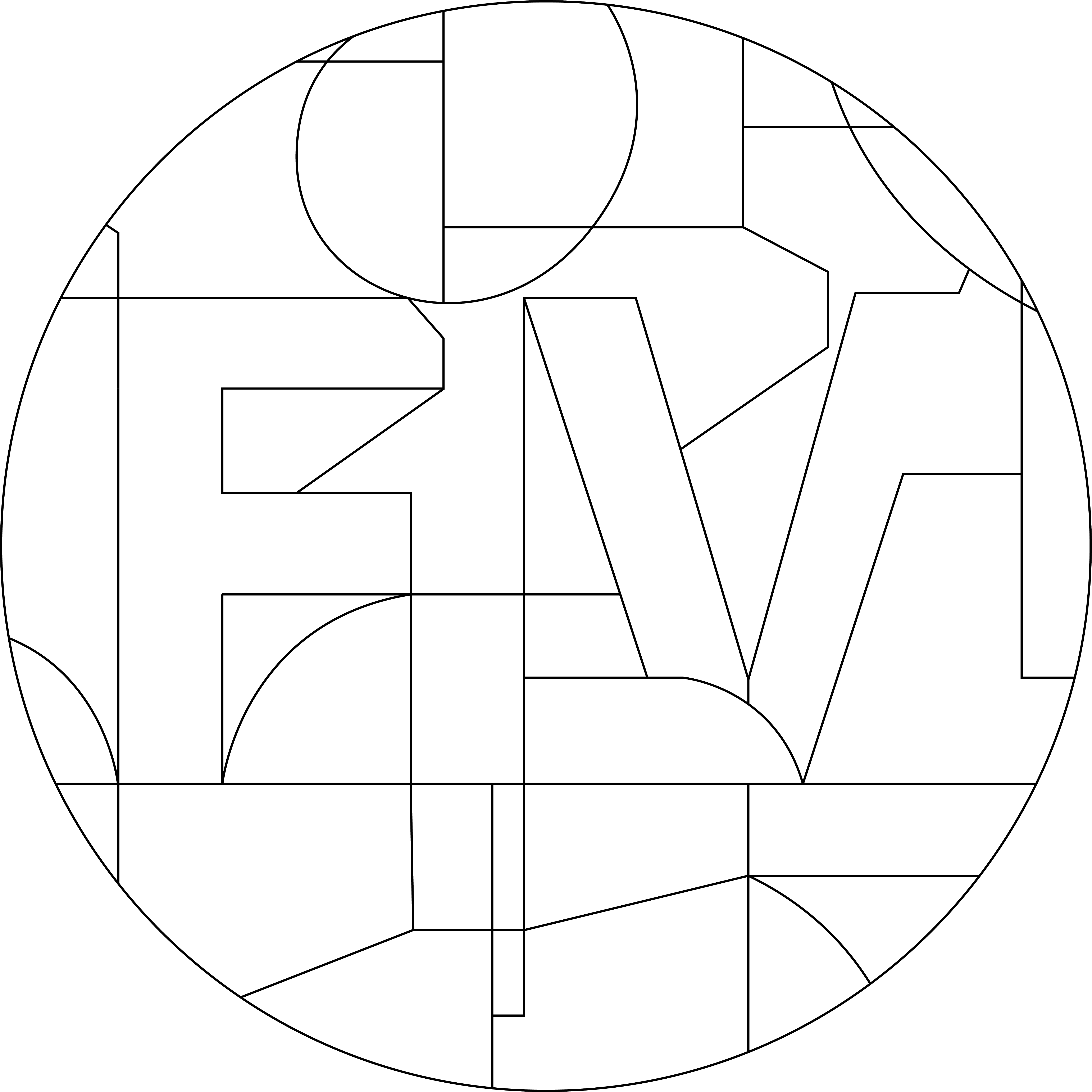About Interwoven
Fashion is not where it should be. While it fuels livelihoods, creates beautiful commodities, and cultivates culture, it also leaves a trail of environmental destruction and social harm. Fashion requires significant effort to keep it on track to contribute to global sustainability goals.
Through the voices and stories presented in this report, eight talented youths from around the world offer a unique snapshot of the fashion industry from diverse perspectives. Their narratives are infused with optimism and hope, serving to inspire action. From reflections on the Global Fashion Summit 2023 to personal anecdotes of their experience within the Next Gen Assembly programme, they share their valuable insights and visionary outlook for the future.
Meet the Members
-

Respectful and Secure Work Environments
-

Better Wage Systems
-

Resource Stewardship
-

Smart Material Choices
-

Circular Systems
- Under each priority, the matrix is organised by status: in force, in force that undergo revisions, ongoing, and non-policy initiative.
- When a policy has already been enacted, the policies are set in a chronological order.
- For the other categories, the order is alphabetical.
- Policies that are relevant to more than one FCA priority and have already been developed under a priority are only named in the other priorities with a hyperlink leading to the full content.
- In terms of colour coding, policies coloured in blue indicate that they are closely monitored through the Policy Hub – Circularity for Apparel and Footwear [1] or one of its partner organisations.
- Beige cells were either not relevant or applicable to be developed at this time.
- Selected position papers refers to the Policy Hub´s or its founding members’ positions.
- Respectful and Secure Work Environments
- Better Wage Systems
- Resource Stewardship
- Smart Material Choices
- Circular Systems
Kaja Grujic
Next Gen Assembly 2023 Member
Placing climate justice at the heart of fashion practice, Kaja Grujic aims to craft a new story for fashion. With a multidisciplinary background in film and political science, she explored the powerful intersection of art and change-making, completing the Dual BA program between Sciences Po Paris and Columbia University. She continued to the MA Fashion Futures course at London College of Fashion, exploring fashion as a critical change agent within the climate movement. Deeply passionate about developing narratives that push the boundaries of climate-focused storytelling, Kaja has produced a variety of creative projects. Her MA thesis film, Entangled, has been screened at multiple international film festivals and galleries, including the Creative Climate Awards in New York, where it won the Audience Award. As an art director and creative producer, she has also worked on fashion campaigns pushing the boundaries of what sustainable fashion can look like. She is eager to continue developing her creative practice and producing stories rooted in regenerative cultures and climate optimism.
Sanjana Pimoli
Next Gen Assembly 2023 Member
Connecting the youth’s aspirations with the apparel supply chain, Sanjana Pimoli works to scale disruptive innovations and sustainable business models to support the fashion industry’s sustainability agenda. She is the Assistant Manager within the Communications and Sustainability Innovations Team at Shahi Exports, India’s largest apparel exporter. She holds a degree in Economics Hons. Identifying the power of legislation as key in accelerating sustainability, she completed her Environmental Law and Policy diploma from National Law University, Delhi. With a 360-degree visibility in the supply chain from raw material to garmenting to recycling, she leverages partnerships to support sustainable fashion by piloting new technologies in alternate raw materials, processing, and renewable energy. She is among 1000 global talents in the Unleash Innovation Lab 2022, building innovative solutions for the world’s pressing sustainability issues. She envisions a fashion industry focused on just transition and equitable purchasing practices to accelerate decarbonisation and contribute to a net-zero fashion industry.
Prakriti Choubey
Next Gen Assembly 2023 Member
Prakriti Choubey is a creative strategist and storyteller from India. She is a postgraduate of MA Fashion Entrepreneurship and Innovation at London College of Fashion and a graduate with a gold medal from National Institute of Fashion Technology, Delhi. Prakriti is deeply passionate about preserving the rich cultural heritage embodied in traditional crafts. As the student winner of the Fashion Values Challenge, Prakriti envisions her project Avatirna as a brand that disrupts perceptions of crafts by representing them in the virtual world through collectibles. Avatirna has secured funding from University of the Arts London for its development, and been named one of the top 50 emerging Web3 Fashion designers awarded by The SYKY. She aims to create social change in the fashion industry through innovation. As a multi-award recipient and agent of change, Prakriti excels in crafting narratives interlaced with strategy and innovation, envisioning a future where everyone has a voice of representation.
Clara Tomé
Next Gen Assembly 2023 Member
Clara Tomé wears many hats: she is a Spanish environmental law specialist, nature and animals advocate, climate activist, EU Climate Pact ambassador, speaker, and fashion model. With a law degree and a master’s in environmental law, Clara has interned at the UN’s Environmental Programme, focusing on sustainable fashion communications and policy. As an EU Climate pact ambassador, she actively raises awareness about climate change and inspires youth to take meaningful action for a better planet. From influencing consumption patterns to advocating for human rights, plant-based food choices, animal welfare, regenerative fashion, and more conscious lifestyles, Clara is committed to fostering positive change. She has been a speaker at various conferences like the UN Water Conference and at GFS in Copenhagen among others. Clara’s driving force is an unwavering passion for nature and animals. Her ultimate goal is to bridge the gap between humanity and the environment, to reconnect ourselves with nature and other species, to coexist peacefully, and to win this battle against climate change (and rather against ourselves).
Jesse Boga Madriaga
Next Gen Assembly 2023 Member
Jesse Madriaga is a journalism-trained writer in the Philippines who has worked extensively in news and lifestyle media, PR, and science communication. He writes for the Mindanao Times and the Philippine Daily Inquirer. As part of his current graduate school journey at the University of Mindanao, he explores the role of community voices in fashion and sustainability. As a WEF Global Shaper, Jesse takes leadership roles in convening youths and communities for inclusive conversations about sustainability. He believes in the power of writing and creating storytelling-centred platforms to achieve global goals. Jesse draws inspiration from global conversations and local experiences; these allow him to gain more perspective for his writing practice. He enjoys yoga and dressing up his avatar in Fortnite.
Ikeoluwa Adebisi
Next Gen Assembly 2023 Member
Ikeoluwa Adebisi is a trained fashion designer-entrepreneur skilled in dressmaking with 5+ years of experience and a seasoned fashion professional with knowledge of the Nigerian fashion industry. She is also a sustainable fashion advocate, fashion researcher, digital creator, and marketer. She is currently building UpTote by IKÉ, a fashion brand that upcycles pre-consumer textile waste into functional and fashionable pieces. As a fashion content creator and social media manager, Ikeoluwa effectively communicates complex sustainability concepts to a wide range of audiences. She helps brands reach their ideal customers and generate revenue. She holds a degree in History and was involved in documenting the fashion histories of various African societies alongside other research fellows at the Council for International African Fashion Education (CIAFE). Her ultimate goal is to assist small and medium fashion enterprises in Africa to build sustainable businesses.
Pedro Ferreira
Next Gen Assembly 2023 Member
Pedro Ferreira is a fashion revolutionary. With a double master’s degree in Circular Economy and a bachelor’s degree in Biotechnology, Pedro acts in the intersection between technology, innovation, and sustainability. His expertise is in the environmental performance of fashion materials, predominantly focused on footwear. For the past two years, Pedro has represented Brazil in the Slow Fashion Movement, a global NGO that aims to guide customers to more environmentally and socially conscious decisions. Pedro also acts on the global board of SFM, as the Research and Education Lead, designing and establishing primary data collection and partnership with Academia. He is embarking on a new role as a Life Cycle Assessment specialist in Norway. In his free time, Pedro learns how to sew, so he can wear the revolution he promotes.
Indira Varma
Next Gen Assembly 2023 Member
Indira Varma finds a strong sense of purpose in environmental consciousness and community building. A sustainability-driven fashion and textiles designer from Bangalore, India, she is passionate about lending a contemporary voice to indigenous craft practices. A fresh graduate from the LASALLE College of the Arts, Singapore, Indira’s graduation project was featured in Vogue and Grazia Sinagpore. Placing nature central to design decisions, her process is largely driven by the grassroots textiles communities and a supply chain that is as responsible as possible. She is inspired by artefacts, history and natural ecosystems and expresses these through stories of culture, artisans, locality and materiality. Her research explores cultural sustainability in India through practices like natural dyes, block printing and handloom weaves. In addition, Indira curates collaborative workshops on sustainable fashion and environmental protection. She is jokingly refered to as an ‘ecopolice’ for her awareness initiatives. In her free time, she volunteers with the Art of Living Foundation and enjoys writing, making jewellery, hiking, exploring new places and cooking.
Purposeful Storytelling
Storytelling is central to this journey and the Assembly members share roles in nurturing stories, amplifying voices from all parts of the supply chain, and creating shared understandings of sustainability, lived realities, and what it means to take action today. From narratives on waste, consumption and innovations to reflections on identity, culture, and technology, the Assembly boldly pens fears, thoughts and hopes for fashion and the future this holds for the world that they see.
In Partnership With
London College of Fashion’s (LCF) Centre for Sustainable Fashion (CSF)
Centre for Sustainable Fashion (CSF) is a University of the Arts London research, education and knowledge exchange centre.
Based at London College of Fashion, the centre provokes, challenges, and questions the status quo in fashion to contribute to a system that recognises its ecological context and honours equity. CSF shapes and contributes to Fashion Design for Sustainability as a field of study, industry practices and educational models. By exploring and cross-referencing fashion’s relational ecological, social, economic, and cultural agendas, the centre engages in transformational design practices. CSF takes a pluralistic, systemic approach, collaborating across its network of universities, businesses and other organisations from all around the world. All of CSF’s work is underpinned by their Declaration.
Fashion Values
Fashion Values is a sustainability education programme led by Centre for Sustainable Fashion in collaboration with Kering, IBM, Vogue Business Eyes on Talents and GFA. The Fashion Values partners bring together a network of sustainability experts, fashion professionals, educators, academics and students from across the fashion system. The Fashion Values vision is to make sustainability education for fashion open, accessible, and transformative.
Fashion CEO Agenda
The Fashion CEO Agenda highlights the imperative need for the coexistence of environmental and social sustainability as neither can be achieved without the other.
The Priorities
At the heart of the Fashion CEO Agenda, the most crucial environmental and social sustainability priorities offer clear guidance on where to focus efforts.
2030 Fashion Sector Vision
Accompanying the Fashion CEO Agenda is the 2030 Fashion Sector Vision, which presents where the sector at large should be in relation to each priority area within seven years’ time – a critical milestone on the road to net positive by 2050. It is important to acknowledge that companies’ ability to deliver on these actions, require significant effort, investment, and multi-stakeholder action, with the support of governments and financial institutions in the creation of an enabling environment to scale industry transformation, while empowering citizens and consumers.
Fashion CEO Agenda
The 2030 Fashion Sector Vision accompanies the Fashion CEO Agenda, the guide to what every fashion leader needs to prioritise to future-proof their company. The publication outlines the most pressing issues and the biggest opportunities for environmental and social impact and provides guidance on how to move from words to action.
Fashion CEO Agenda
The Fashion CEO Agenda is a succinct checklist to support in establishing and implementing leadership strategies for achieving a net positive fashion sector. The publication outlines the most pressing issues and the biggest opportunities for environmental and social impact and includes subsequent action areas for brands, retailers, and producers to act on.
Launched at Global Fashion Summit: Copenhagen Edition 2023
Considerations when reading this resource
[1] The Policy Hub – Circularity for Apparel and footwear unites the apparel and footwear industry to develop ambitious policies that accelerate sustainable practices. It represents more than 700 apparel & footwear stakeholders, including brands, retailers, manufacturers, and NGOs. It gathers the technical expertise and knowledge from members of its partner organisations: Global Fashion Agenda (GFA), Sustainable Apparel Coalition (SAC) and the Federation of European Sporting Goods (FESI). In close collaboration with policymakers, the Policy Hub draws on these technical inputs to propose ambitious policies for the textiles industry in Europe.
Fashion CEO Agenda
The Fashion CEO Agenda (2021), GFA’s flagship publication, provides a concise overview of what every fashion leader needs to prioritise to future-proof their company. It presents a five-priority framework that highlights the critical environmental and social impact issues and the significant opportunities for businesses to create a net-positive fashion industry.
The Fashion CEO agenda presents the following 5 priorities:
What is the GFA Policy Matrix: Americas?
Introduction
Global Fashion Agenda is excited to present the GFA Policy Matrix: Americas, a dynamic and evolving resource designed to comprehensively document the policy landscape relevant to sustainability in the fashion industry across North and South America. Much like its European counterpart, the GFA Policy Matrix: EU, this publication serves as a practical reference for industry stakeholders, policymakers, sustainability advocates, and other stakeholders interested in deciphering the intricacies of policies related to textiles.
A Comprehensive Resource
The GFA Policy Matrix: Americas is a non-exhaustive document that encapsulates a wide array of policy efforts across the Americas. Our goal is to offer a holistic perspective on the current policy initiatives in place, in development, or upcoming, which address critical sustainability and social issues within the fashion industry.
Your Input Matters
We strongly encourage stakeholders from all corners of the industry to actively participate in the evolution of this matrix. Your insights and suggestions are invaluable in ensuring that we capture the full spectrum of relevant policy initiatives. We invite you to share your knowledge and recommendations by sending them to info@globalfashionagenda.org.
A Focus on North America
It is important to note that the GFA Policy Matrix: Americas currently emphasises policy initiatives predominantly in North America. This focus stems from dedicated research conducted in anticipation of the Global Fashion Summit 2023: Boston Edition, which took place on 27 September. The Summit dived further into Global Fashion Agenda’s 2023 editorial theme, ‘Ambition to Action’, reflecting on and responding to what happened at Global Fashion Summit: Copenhagen Edition in June. The content was structured around key themes including Policy, Finance and Retail, while also complementing the core priorities of the Fashion CEO Agenda: Respectful and Secure Working Environments, Better Wage Systems, Resources Stewardship, Smart Material Choices, and Circular Systems.
WHAT IS A CIRCULAR FASHION SYSTEM
Today’s linear “take, make, dispose” economic model is reaching its limits, and natural resources are becoming increasingly scarce, threatening the growth of the fashion industry.
A circular system restores and regenerates materials, in addition to providing opportunities to reduce environmental pressures and ease demand on natural resources while securing future supply and capturing the value of a product to the greatest extent possible.
The public is becoming increasingly aware of the environmental impacts of the fashion industry. Consumers expect the industry to address issues related to production, such as extensive water usage, toxic chemicals and garments accumulating in landfills. Implementing circularity offers an opportunity to evaluate and improve current business models as much as it provides a unique opportunity to create a close relationship with consumers.
An essential part of creating a circular fashion system is to set up collection systems, integrate circular design and consider how to manage end-of-use of garments. This can happen through practices that extend usage, for example resale, or through recycling worn out garments and incorporating recycled post-consumer fibres into the production of new garments.
Circular Design Toolbox
This toolbox is designed to support fashion brands and retailers who would like to explore circular design within their company. It highlights the role design plays in creating a circular fashion system and is aimed to redefine the life cycle of garments by looping them continuously back into the fashion system. Download it below.














